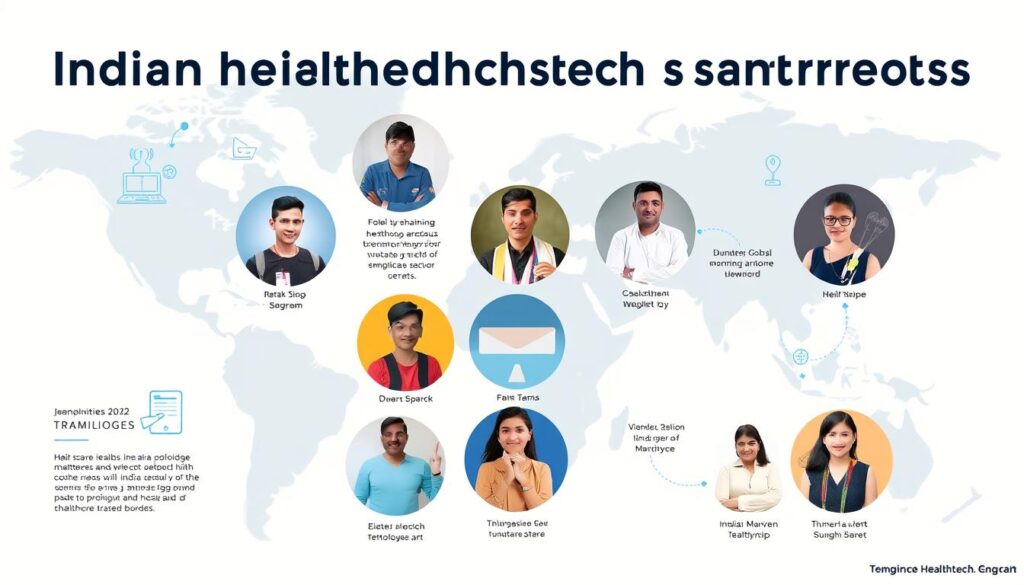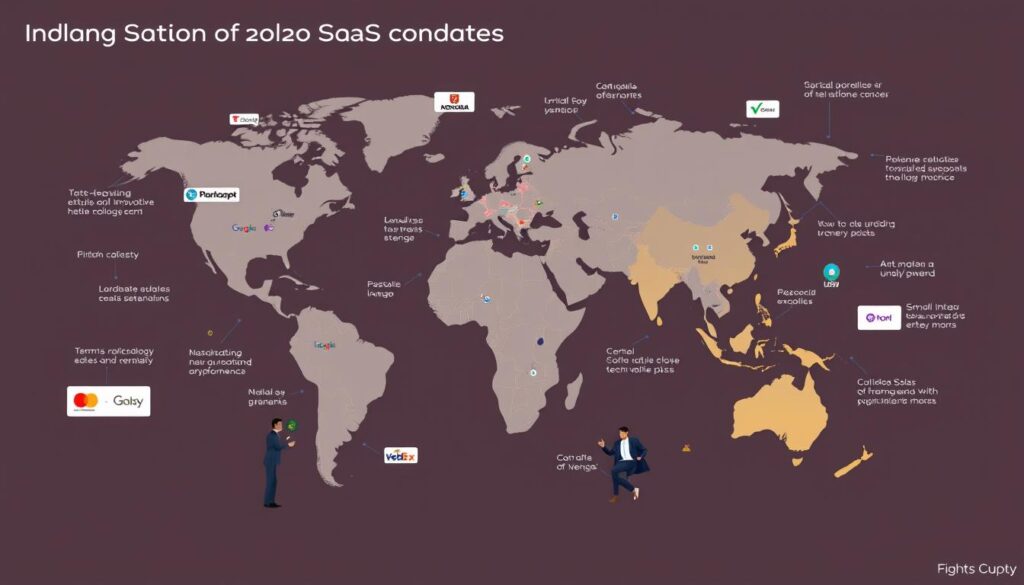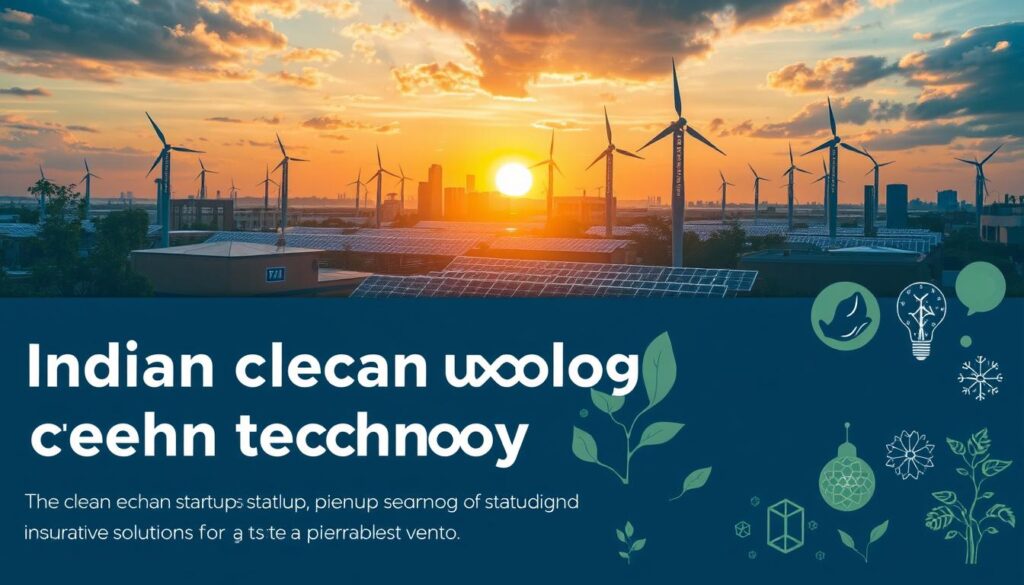India is rapidly emerging as a global technology powerhouse, with startups disrupting traditional industries and creating innovative solutions. The Indian tech ecosystem has evolved significantly, transforming from service-oriented businesses to product innovators competing on the world stage.
This shift is driven by advancements in new technology and engineering, enabling startups to develop cutting-edge products. As a result, Indian tech startups are making a significant impact globally, with examples in sectors like fintech, healthtech, and edtech.
Understanding the terminology used in these sectors is crucial for investors, entrepreneurs, and business professionals. This glossary aims to provide a comprehensive guide to the key terms and concepts in the Indian tech ecosystem.
- The Rise of India’s Tech Startup Ecosystem
- Understanding Technology in the Indian Startup Context
- Software Development Terminology
- Artificial Intelligence and Machine Learning Glossary
- Fintech Revolution: Key Terms and Concepts
- Healthtech Innovations and Terminology
- EdTech Terminology Transforming Global Education
- SaaS and Enterprise Solutions Dictionary
- E-commerce and Retail Tech Glossary
- Mobility and Transportation Tech Terminology
- Agritech Innovations Vocabulary
- Clean Technology and Sustainability Terms
- Funding and Investment Terminology
- Global Expansion and Market Entry Terms
- Conclusion: The Future of Indian Tech Startups on the Global Stage
- FAQ
- What are the key factors driving India’s startup growth?
- What is the current state of the Indian tech ecosystem?
- What are some of the most promising areas for Indian tech startups?
- How are Indian startups using artificial intelligence and machine learning?
- What are some of the key terms and concepts in the fintech revolution?
- How are Indian startups using technology to improve healthcare?
- What are some of the key terms and concepts in edtech?
- How are Indian startups using SaaS and enterprise solutions?
Key Takeaways
- India is becoming a significant player in the global tech industry.
- Indian startups are evolving from service-oriented to product innovators.
- The glossary covers key sectors like fintech, healthtech, and edtech.
- Understanding tech terminology is crucial for stakeholders.
- The Indian tech ecosystem is driven by advancements in new technology and engineering.
The Rise of India’s Tech Startup Ecosystem
India’s tech startup ecosystem has witnessed tremendous growth over the past decade, transforming the country into a global technology hub. This growth is attributed to various factors, including government initiatives, increased investment in technology, and a rising demand for innovative solutions.
Historical Development of India’s Tech Sector
The history of India’s tech sector dates back to the 1970s when the government began to focus on developing the country’s IT capabilities. The establishment of the Indian Institute of Technology (IIT) and other premier technical institutions laid the foundation for the growth of the tech industry. Over the years, India’s tech sector has evolved, with the country becoming a major outsourcing destination for global companies.
Key Factors Driving India’s Startup Growth
Several factors have contributed to the growth of India’s startup ecosystem. These include a large and growing market, availability of skilled talent, and government initiatives such as Startup India and Make in India. Additionally, the rise of digital technologies has enabled startups to develop innovative solutions, disrupting traditional industries and creating new opportunities.
Current State of the Indian Tech Ecosystem
The current state of the Indian tech ecosystem is characterized by a thriving startup culture, with numerous incubators, accelerators, and co-working spaces. The ecosystem is supported by a growing number of investors, including venture capitalists and angel investors. According to recent statistics, India is home to over 70,000 startups, with many achieving significant scale and success.
| Indicator | Statistic |
|---|---|
| Number of Active Startups | 70,000+ |
| Funding Received | $10 Billion+ |
| Sector Distribution | 40% in Technology, 20% in E-commerce, 15% in Fintech |
Understanding Technology in the Indian Startup Context

Technology plays a pivotal role in shaping the Indian startup landscape, enabling innovative solutions to complex problems. The integration of technology in various sectors has been a game-changer, driving growth and competitiveness.
Defining Technology in Modern Indian Startups
In modern Indian startups, technology encompasses a broad range of tools and platforms that facilitate innovation. From artificial intelligence and machine learning to blockchain and Internet of Things (IoT), the application of technologies is vast. As stated by a prominent tech entrepreneur, “The future of Indian startups lies in their ability to harness technology to solve real-world problems.”
“The future of Indian startups lies in their ability to harness technology to solve real-world problems.”
The Evolution of Technological Applications in India
The evolution of technological applications in India has been remarkable, transitioning from basic IT services to innovative products and platforms. Indian startups have successfully adopted a mobile-first and cloud-first approach, allowing them to leapfrog traditional technology development stages. This shift has enabled the creation of new technology applications that are being exported to other emerging markets.
The role of emerging technologies like AI, blockchain, and IoT is significant in the current wave of Indian startups. These technologies are being applied across traditional sectors like agriculture, manufacturing, and retail to drive efficiency and innovation. Furthermore, Indian startups are using technology to address uniquely Indian problems such as financial inclusion, healthcare access, and educational disparities.
As the Indian startup ecosystem continues to evolve, the importance of science, technology, engineering, and research (STEM) fields cannot be overstated. The integration of engineering and research in startup operations will be crucial for driving technological change and sustaining growth.
Software Development Terminology
As India’s tech scene continues to expand, understanding software development terminology becomes increasingly important. The country’s tech industry is driven by a diverse range of technologies and innovations, making it essential for startups and established companies alike to stay up-to-date with the latest terms and concepts.
Programming Languages Dominating Indian Tech Scene
India’s tech ecosystem is characterized by a diverse range of programming languages. Java, Python, and JavaScript are among the most popular choices, with many startups leveraging these languages to develop innovative solutions. The choice of programming language often depends on the specific requirements of the project, with factors such as scalability, security, and ease of development playing a crucial role.
DevOps and Agile Methodologies in Indian Startups
DevOps and Agile methodologies have become essential components of software development in Indian startups. Agile methodologies enable teams to respond quickly to changing requirements, while DevOps practices facilitate seamless collaboration between development and operations teams. This enables startups to deliver high-quality software rapidly and efficiently.
Cloud Computing Terms Essential for Indian Tech Companies
Cloud computing has become a critical component of India’s tech landscape, with many startups leveraging cloud services to drive innovation and growth. Key cloud computing terms include IaaS (Infrastructure as a Service), PaaS (Platform as a Service), and SaaS (Software as a Service). Understanding these concepts is crucial for Indian tech companies looking to scale their operations and deliver high-quality services.
Indian startups are increasingly adopting cloud technologies to enable rapid scaling without significant upfront infrastructure investments. Cloud providers such as AWS, Azure, and Google Cloud offer a range of services, including AI/ML platforms, database services, and analytics tools, that are gaining popularity among Indian startups.
Artificial Intelligence and Machine Learning Glossary

The integration of AI and ML in Indian tech startups is transforming the global technology landscape. As Indian companies continue to innovate and push the boundaries of what’s possible with AI and ML, it’s essential to understand the key concepts and terminology driving this revolution.
Core AI Concepts Powering Indian Innovations
Indian startups are leveraging core AI concepts such as deep learning, natural language processing, and computer vision to develop innovative solutions. These technologies are being applied across various industries, including healthcare, finance, and customer service, to drive efficiency and improve outcomes.
Machine Learning Frameworks Used by Indian Startups
Indian startups are utilizing popular ML frameworks such as TensorFlow, PyTorch, and Scikit-Learn to build and deploy their AI models. These frameworks provide the necessary tools and libraries to develop and train ML models, enabling startups to bring their ideas to life.
Natural Language Processing in Indian Tech Solutions
NLP is a critical component of many Indian tech solutions, enabling companies to analyze and understand human language. With 22 official languages and hundreds of dialects, India presents a unique challenge for NLP developers. However, this challenge has also led to the development of innovative NLP solutions, including multilingual processing, sentiment analysis, and chatbot development.
The following table highlights some key NLP terminology relevant to the Indian context:
| NLP Term | Description | Example |
|---|---|---|
| Multilingual Processing | The ability to process and analyze text in multiple languages | Google Translate |
| Sentiment Analysis | The process of determining the emotional tone behind a piece of text | Customer feedback analysis |
| Chatbot Development | The creation of conversational AI interfaces | Customer support chatbots |
Indian startups are creating innovative NLP solutions for local language content analysis, translation, and voice interfaces. The availability of datasets and resources for Indian language NLP development is also driving research initiatives in this area.
Fintech Revolution: Key Terms and Concepts

India’s fintech ecosystem is thriving, with startups developing novel solutions to complex financial challenges. The sector is witnessing significant growth, driven by advancements in technology and changing consumer behaviors.
Digital Payment Systems Terminology
Digital payment systems have revolutionized the way transactions are conducted in India. Terms like UPI (Unified Payments Interface), NEFT (National Electronic Funds Transfer), and IMPS (Immediate Payment Service) are now commonly used. These systems have made financial transactions more accessible and convenient.
Blockchain and Cryptocurrency Vocabulary
Blockchain technology and cryptocurrencies are gaining traction in the Indian fintech landscape. Understanding terms like blockchain, Bitcoin, and smart contracts is crucial for navigating this space. These technologies are being explored for their potential to enhance security and efficiency in financial services.
Regulatory Technology (RegTech) Definitions
RegTech is emerging as a critical component of the fintech ecosystem, helping companies comply with regulatory requirements more efficiently. Key concepts include compliance automation, risk management, and regulatory reporting. The use of technology in RegTech is addressing issues related to regulatory compliance, providing examples of innovation in the sector.
The relationship between regulators and RegTech startups in India is also evolving, with regulatory sandboxes and innovation hubs being established. This collaboration is expected to drive further growth in the fintech sector, potentially influencing global financial systems and even impacting financial hubs like New York.
Healthtech Innovations and Terminology

The Indian healthtech sector is witnessing significant growth, driven by innovations in telemedicine and health data management. This growth is fueled by the adoption of advanced technology that is transforming healthcare delivery in India and beyond.
Telemedicine and Remote Healthcare Terms
Telemedicine has become a crucial aspect of healthcare in India, especially with the rise of remote healthcare services. Key terms include virtual consultations, remote patient monitoring, and telehealth platforms. These technologies are improving access to healthcare, particularly in rural areas.
Medical Diagnostics Technology Vocabulary
Medical diagnostics in India are being revolutionized by technologies such as AI-powered diagnostic tools, digital pathology, and point-of-care diagnostics. Understanding terms like sensitivity, specificity, and diagnostic accuracy is essential for evaluating the effectiveness of these technologies.
Health Data Management Concepts
Effective health data management is critical for improving healthcare outcomes. Concepts such as electronic health records (EHRs), health information exchanges (HIEs), and personal health records (PHRs) are vital. Ensuring data privacy and security is also a significant concern, with regulations like the Personal Data Protection Bill playing a crucial role.
The Indian healthtech ecosystem is addressing various issues related to privacy, data security, and interoperability. For examples, healthtech companies are implementing robust data protection measures and developing standardized health information systems to facilitate seamless data exchange.
EdTech Terminology Transforming Global Education
Indian edtech startups are at the forefront of a global education revolution, utilizing advanced technology to make learning more accessible and effective. As these startups expand internationally, they are introducing innovative educational tools and methodologies that are transforming the way we learn.

Online Learning Platform Concepts
Online learning platforms are becoming increasingly popular, offering a range of technology-enabled learning tools and resources. These platforms provide flexible learning options, enabling students to access educational content anywhere, anytime.
Adaptive Learning Technology Terms
Adaptive learning technology uses data and analytics to personalize the learning experience, adjusting the difficulty level and content to suit individual students’ needs. This system helps improve learning outcomes by providing targeted support.
Educational Assessment Tools Vocabulary
Educational assessment tools are being transformed by technology, with a shift from traditional examinations to continuous, skill-based evaluation. Automated grading systems, plagiarism detection, and proctoring technologies are being developed to support this shift, providing evidence-based assessment and improving academic integrity.
SaaS and Enterprise Solutions Dictionary

The Indian SaaS industry has been gaining significant traction globally, with numerous companies expanding their presence beyond geographical boundaries. This growth is driven by the increasing demand for cloud-based technology solutions that cater to diverse business needs.
B2B SaaS Terminology
B2B SaaS refers to software-as-a-service solutions designed for businesses, enabling them to streamline operations, enhance productivity, and improve customer engagement. Key terms in B2B SaaS include scalability, integration, and security, which are crucial for enterprises adopting these solutions.
Enterprise Resource Planning (ERP) Concepts
ERP systems integrate various organizational functions, such as finance, HR, and supply chain management, into a unified platform. This integration enables businesses to make informed decisions, optimize resources, and improve overall efficiency. Examples of ERP solutions include SAP and Oracle.
Customer Relationship Management (CRM) Vocabulary
CRM solutions focus on managing customer interactions and data to enhance relationships and drive sales growth. Key CRM terminology includes lead management, opportunity tracking, and customer journey mapping. Indian SaaS companies are developing CRM solutions that address the unique needs of various industries and market segments.
CRM technology is being revolutionized with AI and automation, enabling features like lead scoring, predictive analytics, and conversational interfaces. Moreover, CRM systems are being integrated with popular communication channels in India, such as WhatsApp and SMS, to facilitate seamless customer engagement.
E-commerce and Retail Tech Glossary

The Indian e-commerce landscape is rapidly evolving with technological innovations. This glossary covers key terms and concepts driving the industry forward.
Omnichannel Retail Technology Terms
Omnichannel retail technology enables a seamless shopping experience across online and offline channels. Key terms include omnichannel commerce, unified commerce, and cross-channel marketing. These technologies help retailers provide a cohesive brand experience, enhancing customer engagement and loyalty.
Examples of omnichannel retail include buy-online-pickup-in-store (BOPIS) and return-online-in-store (ROIS). By integrating online and offline channels, retailers can gain a single customer view, improving customer insights and personalization.
Supply Chain Management Technology Vocabulary
Supply chain management technology is crucial for e-commerce efficiency. Terms like supply chain visibility, inventory management systems, and predictive analytics are essential. These technologies help in optimizing logistics, reducing costs, and improving delivery times.
Indian e-commerce companies are leveraging data analytics and AI to enhance supply chain operations. This includes demand forecasting, real-time tracking, and automated inventory replenishment, leading to more efficient and responsive supply chains.
Consumer Analytics Terminology
Consumer analytics is vital for understanding customer behavior and preferences. Key terms include customer segmentation, cohort analysis, and behavioral targeting. These analytics help businesses tailor their marketing strategies and improve customer experiences.
By analyzing customer data, Indian e-commerce companies can gain valuable insights into shopping patterns and preferences. This analysis enables personalized marketing, improving customer engagement and driving sales. Additionally, technology plays a crucial role in enhancing these analytics capabilities.
Mobility and Transportation Tech Terminology

Indian startups are making significant strides in mobility and transportation technology, transforming the way people and goods move around. This section delves into the terminology that is shaping the industry.
Ride-Sharing and Fleet Management Terms
Ride-sharing and fleet management have become crucial in urban mobility. Terms like dynamic pricing, ride-hailing, and fleet optimization are now commonplace. These concepts are driven by technology that enhances efficiency and user experience.
Electric Vehicle Technology Vocabulary
The shift towards electric vehicles (EVs) is gaining momentum, with terms like battery swapping, charging infrastructure, and range anxiety becoming increasingly relevant. Indian startups are at the forefront of innovation in EV technology.
Last-Mile Delivery Technology Concepts
Last-mile delivery is a critical aspect of logistics, with technology playing a vital role in optimization. Concepts such as hyperlocal delivery, micro-fulfillment centers, and route optimization are being adopted to improve efficiency. For examples, AI and machine learning are being used to predict delivery times and manage delivery personnel.
These advancements are not only enhancing operational efficiency but also addressing environmental concerns through the use of electric vehicles and other sustainable practices.
Agritech Innovations Vocabulary

Agritech is emerging as a key driver of change in India’s agricultural sector, leveraging technology for sustainable farming. Indian agricultural technology startups are at the forefront of this revolution, introducing innovative solutions to improve productivity and efficiency.
Precision Farming Technology Terms
Precision farming involves the use of advanced technology to optimize crop yields and reduce waste. Key terms include GPS-guided farming, drone technology, and IoT-based monitoring systems. These innovations enable farmers to make data-driven decisions, improving overall efficiency.
Farm Management Software Concepts
Farm management software is crucial for modern farming, helping farmers manage resources, track crop health, and analyze weather patterns. These software solutions often incorporate features like crop planning, inventory management, and financial tracking, making farm operations more streamlined and efficient.
Agricultural Supply Chain Technology Vocabulary
The agricultural supply chain is being transformed by digital technology, enhancing traceability and reducing intermediaries. Key concepts include digital marketplaces, cold chain monitoring, and blockchain-based systems for improved transparency. For examples, blockchain technology is being used to track the origin and movement of produce, ensuring authenticity and quality.
Indian startups are leveraging these technologies to create more direct connections between farmers and buyers, improving market access and efficiency. Post-harvest technologies are also being employed to reduce waste and maintain quality during transit and storage.
Clean Technology and Sustainability Terms

As the world shifts towards a more sustainable future, Indian clean technology startups are making a significant global impact. The integration of clean technology and sustainability is crucial for reducing environmental footprints and promoting eco-friendly practices.
Renewable Energy Technology Vocabulary
Renewable energy technologies are pivotal in the transition to a sustainable energy future. Terms like solar photovoltaic (PV), wind energy, and hydroelectric power are becoming increasingly common. Indian startups are innovating in these areas, contributing to global efficiency in energy production.
Waste Management Technology Terms
Effective waste management is critical for sustainability. Technologies such as waste-to-energy, recycling, and biogas production are being adopted by Indian companies. These innovations help in reducing waste and promoting a circular economy.
Sustainable Manufacturing Concepts
Manufacturing processes are being revolutionized by sustainable practices. Concepts like cleaner production, resource efficiency, and industrial symbiosis are being implemented. For examples, companies are adopting Industry 4.0 technologies like IoT, AI, and digital twins to enhance technology and reduce waste.
The adoption of sustainable manufacturing practices not only supports India’s climate commitments but also provides a competitive edge in the global market. By leveraging technology and focusing on sustainability, Indian industries are setting new benchmarks for environmental stewardship.
Funding and Investment Terminology
Understanding funding and investment terminology is crucial for Indian tech startups to navigate the complex landscape of venture capital and exit strategies. As the Indian startup ecosystem continues to evolve, it’s essential for entrepreneurs and investors alike to be familiar with the language of funding and investment.
Venture Capital Terms in the Indian Context
Venture capital plays a vital role in the growth of Indian tech startups. Key terms include pre-money valuation, post-money valuation, and equity stake. Venture capitalists invest in startups in exchange for equity, with the expectation of generating returns through successful exits. For instance, a startup with a pre-money valuation of $10 million that receives a $5 million investment will have a post-money valuation of $15 million.
Startup Valuation Vocabulary
Valuation is a critical aspect of funding and investment. Startups need to understand terms like discounted cash flow (DCF), comparable company analysis (CCA), and venture capital method (VCM) to determine their worth. Accurate valuation is essential for attracting investors and negotiating favorable investment terms.
Exit Strategy Terminology
Exit strategies are a crucial consideration for investors and startups. Common exit strategies include acquisitions, Initial Public Offerings (IPOs), secondary sales, and buybacks. Understanding these concepts is vital for maximizing returns on investment. For example, a successful exit through an acquisition can provide significant returns for investors.
The Indian startup ecosystem is witnessing a surge in technology startups, with many achieving significant valuations. As these companies grow, understanding the terminology associated with funding and investment becomes increasingly important. Examples of successful exits include high-profile acquisitions and IPOs, which demonstrate the potential for substantial returns on investment in the Indian tech sector.
Global Expansion and Market Entry Terms
As Indian tech startups expand globally, understanding the terminology related to global expansion and market entry becomes crucial. This knowledge is essential for navigating the complex landscape of international business and ensuring successful market penetration.
International Market Penetration Vocabulary
Entering new markets requires a deep understanding of local consumer behavior, market trends, and competitive landscapes. Key terms include market research, localization, and market segmentation. For instance, technology plays a vital role in facilitating market research through data analytics tools.
Cross-Border Operations Terminology
Managing operations across borders involves understanding terms like outsourcing, offshoring, and global supply chain management. These concepts are critical for Indian tech companies looking to establish a presence in international markets. Compliance with local regulations is also a key consideration.
Global Compliance and Regulatory Terms
Navigating the regulatory landscape is a significant challenge for Indian tech startups expanding globally. Key terms include data protection, privacy laws, and compliance requirements. For examples, companies must comply with GDPR in Europe and CCPA in California. Understanding these global requirements is essential for successful expansion.
The use of technology to streamline compliance processes is becoming increasingly important. Companies are leveraging technology to reduce regulatory risk and ensure adherence to various regulations across different markets.
Conclusion: The Future of Indian Tech Startups on the Global Stage
The rise of Indian tech startups on the global stage is a testament to the country’s growing prowess in technology and innovation. As we’ve explored throughout this article, various sectors such as fintech, healthtech, and agritech are witnessing significant advancements driven by Indian startups. These companies are not only leveraging technology to solve local problems but are also making a global impact.
One of the key strengths of Indian tech startups is their ability to innovate and adapt technology to suit diverse market needs. The domestic market serves as a testing ground for many of these startups, allowing them to refine their products before expanding globally. However, they face challenges such as talent retention, accessing capital, and scaling operations to achieve sustained global success.
Emerging technology sectors such as clean tech and mobility are areas where Indian startups are poised to lead innovation in the coming years. The relationship between Indian startups and global technology ecosystems is evolving, with a shift from outsourcing to innovation partnerships. Indian entrepreneurs are redefining global perceptions of Indian technology capabilities, contributing to solutions for global challenges like climate change and healthcare access.
Looking ahead, India’s potential to shape the future of technology across multiple domains is vast. With supportive government policies and a maturing ecosystem, Indian tech startups are set to play a pivotal role in the world‘s development and adoption of new technology.
FAQ
What are the key factors driving India’s startup growth?
The key factors driving India’s startup growth include a large and growing market, increasing internet penetration, a rising number of unicorns, and government initiatives such as Startup India and Make in India.
What is the current state of the Indian tech ecosystem?
The Indian tech ecosystem is rapidly evolving, with a growing number of tech startups, increasing foreign investment, and a rising focus on emerging technologies such as artificial intelligence and blockchain.
What are some of the most promising areas for Indian tech startups?
Some of the most promising areas for Indian tech startups include fintech, healthtech, edtech, e-commerce, and clean technology, with many startups leveraging cloud computing, DevOps, and agile methodologies to drive innovation.
How are Indian startups using artificial intelligence and machine learning?
Indian startups are using artificial intelligence and machine learning to drive innovation in areas such as natural language processing, computer vision, and predictive analytics, with applications in industries such as healthcare, finance, and customer service.
What are some of the key terms and concepts in the fintech revolution?
Some of the key terms and concepts in the fintech revolution include digital payment systems, blockchain, cryptocurrency, and regulatory technology, with many startups leveraging these technologies to drive financial inclusion and innovation.
How are Indian startups using technology to improve healthcare?
Indian startups are using telemedicine, medical diagnostics technology, and health data management to improve healthcare outcomes, increasing access to healthcare services and improving patient care.
What are some of the key terms and concepts in edtech?
Some of the key terms and concepts in edtech include online learning platforms, adaptive learning technology, and educational assessment tools, with many startups leveraging these technologies to improve learning outcomes and increase access to education.
How are Indian startups using SaaS and enterprise solutions?
Indian startups are using B2B SaaS, enterprise resource planning, and customer relationship management to drive business efficiency and innovation, with many startups leveraging these technologies to improve operational efficiency and customer engagement.

